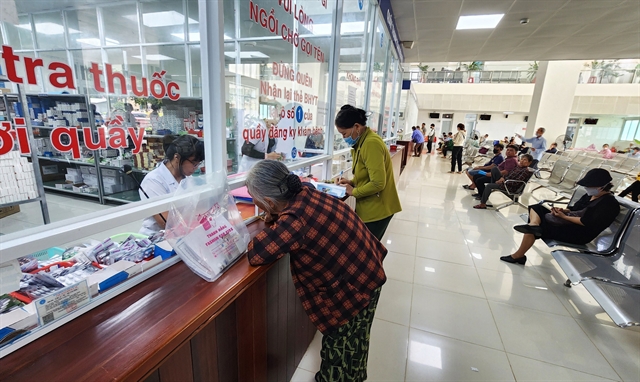 Opinion
Opinion


|
| Member of the Finance-Budget Committee of the National Assembly Hoàng Văn Cường. Photo Quochoi.vn |
Member of the Finance-Budget Committee of the National Assembly Hoàng Văn Cường spoke to online newspaper Dân Trí about the Government’s proposal to increase overtime hours from the current 40 hours per month to 70 hours per month.
The impact of the COVID-19 pandemic caused the productivity and output of many businesses to decline because of labour shortage. The Government proposed the National Assembly consider adjusting the number of overtime hours from 40 hours to 70 hours per month and extending the yearly ceiling overtime hours to 300 hours per year for all occupations and fields. What do you think about the proposal?
The current labour law stipulates the maximum total overtime of an employee in a year, a month, or even a day. Under normal conditions, we just apply the provisions of the Labour Code into practice and calculate based on the labour unit price.
The regulation of overtime work must ensure two factors. The first one is to have enough time to help employees rest to regenerate labour and productivity. In the context of not being too short of labour, the control of overtime is also to harmonise the workload of labour groups.
Secondly, in principle, controlling the overtime of employees ensures sustainable development and encourages enterprises to innovate production machinery and technology. Enterprises must not abuse the increase of labour productivity by increasing overtime, exhausting employees.
This is the driving force for businesses to improve machinery and technology, improve productivity, and ensure the rights of employees and individual workers who want to work.
However, production activities in Việt Nam are facing difficulties after months of social distancing and the increasing number of workers who are off for isolation and COVID-19 treatment. Many businesses lack workers in some positions, unable to meet the requirements of orders.
In that context, we must accept to increase the number of overtime hours for a certain period of time, until production and business recover.
This increase in hours is to compensate for the period of having to take a break from working before.
I think this is good for businesses to ensure the volume of products and goods produced according to their plan, maintaining customers and business conditions. At the same time, the increase in overtime based on the agreement with the employee and the labour unit price can help employees increase their income and make up for the lack of income in the difficult time before.
Of course, the increase in overtime should ensure health care and safety conditions for employees.
Do you mean that the proposal, once approved, should be only applied at a certain time to serve the task of restoring production and export?
Right! The Government's proposal also clearly states that the application deadline for this mechanism is in 2022, not the adjustment of the regulation on overtime as shown in the current Labour Code.
The COVID-19 pandemic has caused many businesses to stop operating for the past few months. So when it comes to returning to production, every unit needs to increase over time to ensure production and business plans, meeting the requirements of customers, and at the same time compensate for the period when employees are off. Therefore, it is possible to increase the overtime for a certain number of months, but the total overtime for the whole year does not exceed the current prescribed level. The total amount of overtime for the whole year must be calculated to harmonise the interests of the parties.
There are also some opinions that along with the increase in overtime, it is necessary to adjust the unit price of overtime to ensure the interests of employees. What do you think about it?
Currently, the Labour Code clearly stipulates the unit price of wages for overtime work. Specifically, working overtime on weekdays, the salary is equal to 150 per cent of the normal salary. If working overtime on a holiday, the unit price is equal to 200 per cent of the normal day's salary and overtime on a public holiday, the employee is entitled to 300 per cent of the normal day's salary.
The National Assembly's resolution on economic recovery and development allows the application of regulations that go beyond the legal framework of unlimited overtime in one month, but wages with overtime hours are guaranteed as regulated.
The increase in overtime, in my opinion, should only be applied in a short time, without amending the Labour Code and should only be applied to some specific industries and fields, based on the agreement between employees and employers.
You analysed that the overtime increase has an impact on labour productivity and production efficiency. Compared with the labour productivity of some countries in the region like Thailand, Singapore, South Korea and Japan, Việt Nam's ranking is lower. Is it possible to increase overtime to boost labour productivity?
When passing the revised Labour Code in 2019, the National Assembly deputies also discussed this issue carefully. Under normal conditions, the total working time of Vietnamese people is not low compared to the world, even compared to workers in Japan, a country that is under high pressure relating to human resources.
The fact is that in developed countries, the number of days off is more than in Việt Nam and their overtime is also strictly controlled to ensure the reproducibility of production. The point of view is that excessive overtime will affect the reproduction of workers' labour-power, affect the division of social work. Some people will work more and even overwhelmingly take someone else's job.
More notably, developed countries advocate not to increase working time, keep overtime at a reasonable level to promote enterprises to self-innovate machinery and technology to increase labour productivity.
The goal should be to make employees work less time but be more productive per working hour. The workers themselves are trained, fostered and improved to a higher level on the basis of ensuring machinery, equipment and techniques. Limiting working time is a way to ensure the rights of employees, to encourage enterprises to improve labour productivity. — VNS




